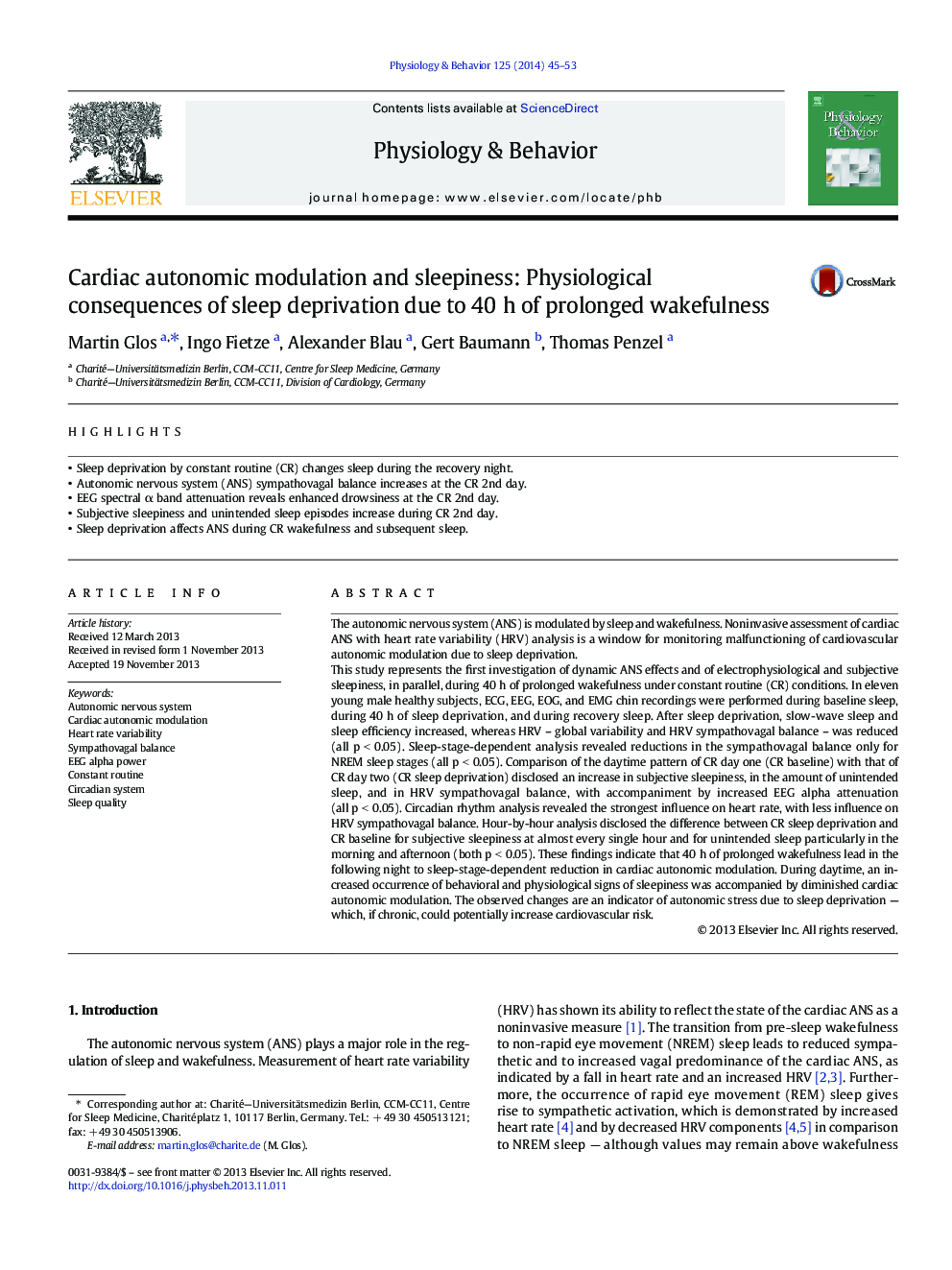| کد مقاله | کد نشریه | سال انتشار | مقاله انگلیسی | نسخه تمام متن |
|---|---|---|---|---|
| 2844311 | 1571192 | 2014 | 9 صفحه PDF | دانلود رایگان |

• Sleep deprivation by constant routine (CR) changes sleep during the recovery night.
• Autonomic nervous system (ANS) sympathovagal balance increases at the CR 2nd day.
• EEG spectral α band attenuation reveals enhanced drowsiness at the CR 2nd day.
• Subjective sleepiness and unintended sleep episodes increase during CR 2nd day.
• Sleep deprivation affects ANS during CR wakefulness and subsequent sleep.
The autonomic nervous system (ANS) is modulated by sleep and wakefulness. Noninvasive assessment of cardiac ANS with heart rate variability (HRV) analysis is a window for monitoring malfunctioning of cardiovascular autonomic modulation due to sleep deprivation.This study represents the first investigation of dynamic ANS effects and of electrophysiological and subjective sleepiness, in parallel, during 40 h of prolonged wakefulness under constant routine (CR) conditions. In eleven young male healthy subjects, ECG, EEG, EOG, and EMG chin recordings were performed during baseline sleep, during 40 h of sleep deprivation, and during recovery sleep. After sleep deprivation, slow-wave sleep and sleep efficiency increased, whereas HRV – global variability and HRV sympathovagal balance – was reduced (all p < 0.05). Sleep-stage-dependent analysis revealed reductions in the sympathovagal balance only for NREM sleep stages (all p < 0.05). Comparison of the daytime pattern of CR day one (CR baseline) with that of CR day two (CR sleep deprivation) disclosed an increase in subjective sleepiness, in the amount of unintended sleep, and in HRV sympathovagal balance, with accompaniment by increased EEG alpha attenuation (all p < 0.05). Circadian rhythm analysis revealed the strongest influence on heart rate, with less influence on HRV sympathovagal balance. Hour-by-hour analysis disclosed the difference between CR sleep deprivation and CR baseline for subjective sleepiness at almost every single hour and for unintended sleep particularly in the morning and afternoon (both p < 0.05). These findings indicate that 40 h of prolonged wakefulness lead in the following night to sleep-stage-dependent reduction in cardiac autonomic modulation. During daytime, an increased occurrence of behavioral and physiological signs of sleepiness was accompanied by diminished cardiac autonomic modulation. The observed changes are an indicator of autonomic stress due to sleep deprivation — which, if chronic, could potentially increase cardiovascular risk.
Journal: Physiology & Behavior - Volume 125, 10 February 2014, Pages 45–53